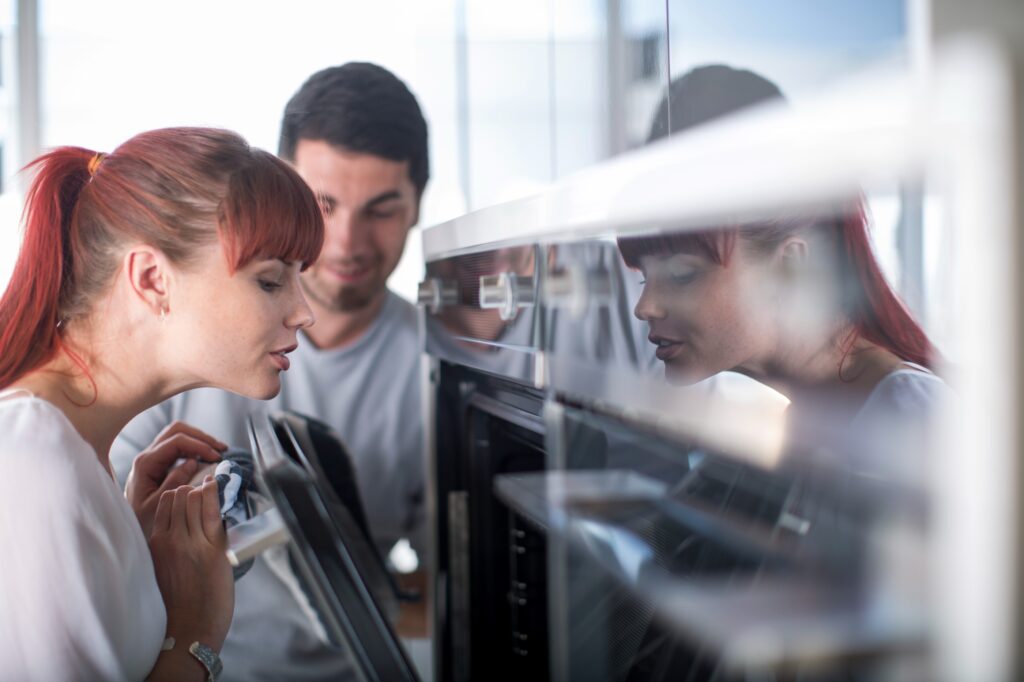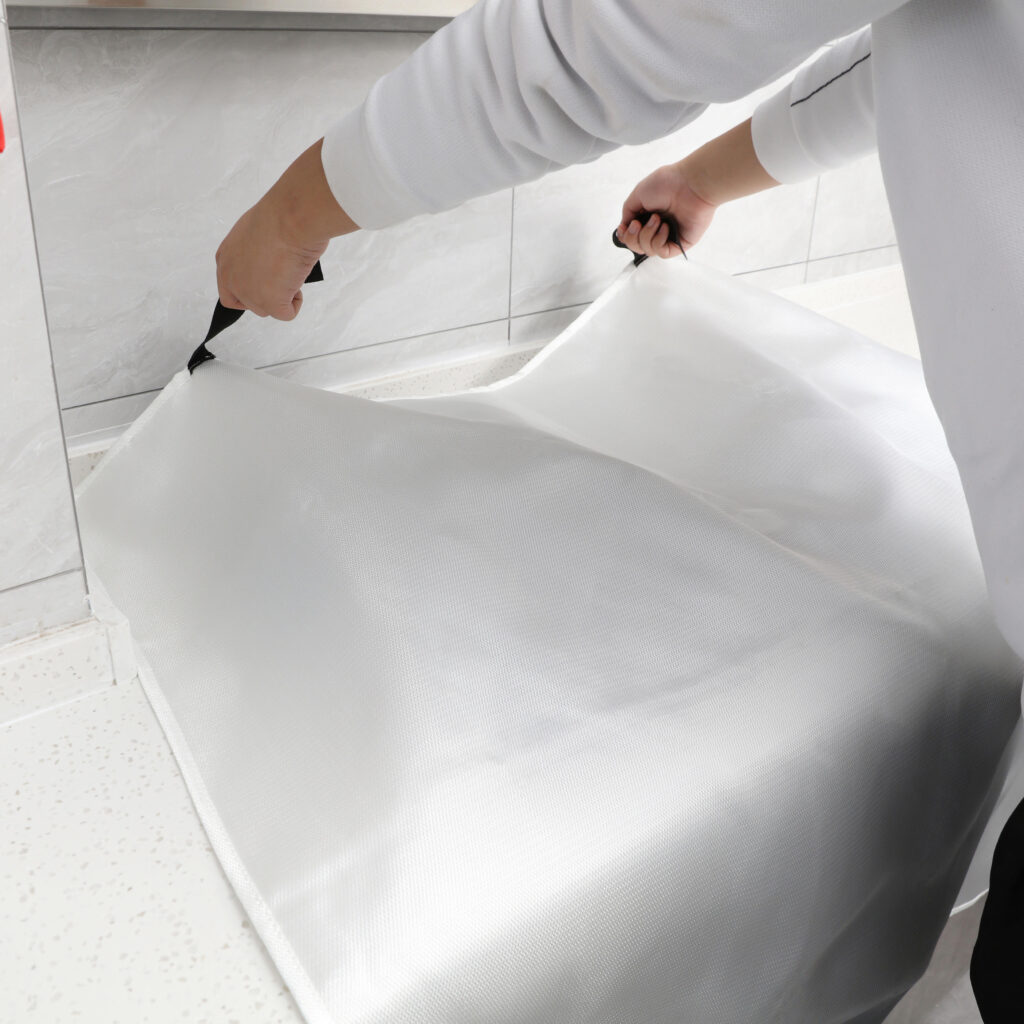Cooking is a daily activity that many of us enjoy. It brings people together and allows us to create delicious meals. However, it’s important to remember that cooking can also be dangerous if proper safety measures are not taken.
According to the National Fire Protection Association (NFPA), cooking caused an average of 158,400 reported home structure fires annually, accounting for 44% of all reported home fires in the U.S. These home fires led to an average of 470 civilian deaths (18% of all home fire fatalities) and 4,150 civilian injuries (42% of all reported home fire injuries) each year.
In this article, we’ll discuss 9 cooking safety tips to help prevent house fires and keep you and your loved ones safe in the kitchen.
Overview of Common Causes of Kitchen Fires
Before diving into the cooking safety tips, let’s first understand some common causes of kitchen fires.
- Unattended cooking: Leaving the kitchen while food is cooking is one of the leading causes of kitchen fires. A simple distraction like a phone call can quickly turn into a disaster.
- Grease buildup: Grease and oil are highly flammable, and if they accumulate on stovetops or in ovens, they can easily catch fire.
- Flammable items near heat sources: Keep combustible items such as oven mitts, paper towels, and plastic bags away from hot surfaces and open flames.
- Misuse of cooking equipment: Using appliances for unintended purposes (e.g., using the stove to melt wax) can lead to fires.
- Electrical malfunctions: Faulty wiring, frayed cords, and overloaded sockets are some of the common electrical issues that can result in kitchen fires.
Now that we understand the potential causes of cooking fires, let’s explore nine cooking safety tips to help prevent house fires.

1. Maintain Appliances and Cookware
Maintaining your cooking appliances and cookware is vital for preventing fires. Regularly inspect your stove, oven, microwave, and other cooking appliances and gadgets for any signs of wear and tear. Loose wires, broken seals, or malfunctioning parts should be repaired or replaced promptly.
Cleaning is equally important. Grease and food particles can build up in appliances and become fire hazards. Ensure that your oven and stovetop are free of residue, and clean your microwave regularly to avoid the risk of sparks and flames.
Additionally, use cookware that is in good condition and avoid using pots and pans with loose handles or damaged surfaces, as these can contribute to accidents and injuries.
2. Practice Safe Cooking
Safe cooking practices are essential for minimizing fire risks. One of the most critical rules is never to leave the stove unattended while cooking. Whether you are boiling water or frying food, always stay in the kitchen. If you need to step away, turn off the burner or have someone else supervise.
Moreover, be sure to use timers to keep track of cooking times and prevent food from burning. Setting a timer to cook something can remind you to check on your food, reducing the chances of accidental fires.
It is also important to wear appropriate clothing. With that being said, avoid loose sleeves and dangling jewelry, which can easily catch fire. Rather, opt for fitted clothing and keep long hair tied back while cooking.
3. Know How to Use a Fire Blanket
In case of a small fire, having a fire blanket on hand can help smother the flames. Fire blankets are made of non-flammable materials and are specifically designed for kitchen fires. They can also be used to wrap around someone in case their clothes catch fire.
It is crucial to know how to extinguish different types of fires as well. Grease fires require a different approach than electrical or paper fires. Familiarize yourself with the correct methods for putting out each type of blaze.
A fire extinguisher is also useful for putting out large cooking fires. Make sure to have a working fire extinguisher in your kitchen and know how to use it properly.
4. Keep a Clean and Clutter-Free Kitchen
Keeping your kitchen clean and clutter-free will make cooking safer. That looks like keeping flammable items like paper towels, dishcloths, and wooden utensils away from the stove. On top of that, storing oils, spices, and other cooking ingredients in designated cabinets or shelves.
Be sure to regularly clean your cooking area to remove grease and food debris. This not only prevents fires but also maintains a hygienic cooking environment. Additionally, wipe down countertops, stovetops, and exhaust fans to prevent grease buildup and reduce the risk of flare-ups.
Organizing your kitchen also means keeping pathways clear. Ensure that exits are unobstructed in case you need to evacuate the cooking area quickly.
5. Handle Oil and Grease Safely to Avoid Flare-Ups
Cooking with oil and grease requires extra caution. To avoid grease fires, never leave a pan of hot oil unattended. Rather, monitor it with care and use a deep-fry thermometer to monitor the temperature and prevent the pan from overheating.
If a grease fire occurs, do not use water to extinguish it. This is because water can cause the flames to spread. Instead, smother the fire by covering the pan with a metal lid or baking sheet. You can also use baking soda to extinguish small grease fires.
Whenever you’re finished cooking dispose of used cooking oil properly. Start by allowing it to cool completely before transferring it to a container for disposal. Never pour hot oil down the sink, as it can clog pipes and create fire hazards.

6. Teach Kids About Kitchen Safety
Involving children in cooking can be a fun and educational experience, but it’s important to teach them about kitchen safety. Start with basic instructions like washing hands and using utensils safely.
Then go onto explain the dangers of hot surfaces and sharp objects. Next showing them how to handle pots and pans with oven mitts and carefully use knives. Be sure to supervise young children closely and assign age-appropriate tasks.
Set clear rules about staying away from the stove and other hot appliances. Don’t forget to encourage them to ask for help when needed and never leave them unattended on the stove or in the kitchen.
7. Remember Smoke Alarms and Fire Escape Plans
Smoke alarms are essential for early fire detection. Install smoke alarms in the kitchen and throughout your home, test them monthly to ensure they are working properly, and replace the batteries in the smoke alarm at least once a year.
Additionally, develop a fire escape plan for your household. To do this, identify two exit routes from each room and establish a meeting point outside. Then practice the plan regularly with all family members, including children, to ensure everyone knows what to do in an emergency.
Knowing how to evacuate safely can save lives and minimize injuries during a fire.
8. Be Mindful of Alcohol and Smoking In the Kitchen
Alcohol and cooking can be a dangerous combination to cause a cooking fire. Alcohol impairs judgment and coordination, increasing the risk of accidents. If you’ve been drinking, it’s best to avoid cooking altogether.
Similarly, smoking in the kitchen presents significant fire hazards. Ashes and cigarette butts can easily ignite flammable materials. Designate a smoking area outside the house to reduce fire risks.
By being mindful of these habits, you can create a safer cooking environment for yourself and your family.
9. Know When to Call for Help and How to Evacuate
Knowing when to call for help is crucial in the event of a kitchen fire. If the fire is small and contained, you may be able to extinguish it yourself using a fire extinguisher. However, if the kitchen fire spreads or you cannot control it, evacuate immediately and call the fire department.
Do not waste time collecting belongings. Close doors behind you to slow the spread of the fire and exit the building quickly. Once outside, go to your designated meeting point and do not re-enter the building until it is declared safe by authorities.
Being prepared and knowing how to act in an emergency can prevent injuries and save lives.
FAQs
What should I do if a grease fire starts on my stove?
If a grease fire starts, do not use water to extinguish it. Instead, cover the pan with a metal lid or baking sheet to smother the flames. You can also use baking soda to put out small grease fires. Turn off the heat and call the fire department if the fire does not go out quickly.
What should I do if a fire starts in my oven?
If a fire starts in your oven, turn off the heat and keep the door closed to starve the flames of oxygen. Do not open the door or attempt to remove anything from the oven. Once the fire has gone out, allow the oven to cool before inspecting it for any damage. If necessary, call the fire department for assistance.
What type of items should I not keep in the kitchen?
Flammable items such as paper towels, dishcloths, and wooden utensils should not be kept near the stove. Hazardous materials like cleaning chemicals should also be out of reach and stored properly in designated areas. Additionally, it is recommended not to store oil or grease near heat sources or cooking appliances to prevent potential fires.

Can I use a fire blanket on all types of kitchen fires?
Fire blankets can be used on small fires but may not be suitable for all kitchen fires. They are only effective for smothering small flames or smoke contained within a pot or pan. For larger fires, it is best to use a fire extinguisher or call the fire department.
What should I do if my clothes catch on fire while cooking?
If your clothes catch fire, remember to stop, drop, and roll to smother the flames. If you cannot extinguish the fire immediately, try to wrap yourself in a large fire blanket to prevent further injuries..
How often should I clean my kitchen exhaust system?
It is recommended that your kitchen exhaust system be inspected and cleaned by a professional at least once a year. However, if you cook frequently or notice any grease buildup, cleaning the system more often may be necessary for safety reasons. Regular maintenance can prevent fires and ensure the proper functioning of the exhaust system.
Conclusion
Incorporating these cooking safety tips into your daily cooking routine can significantly reduce the risk of house fires. From proper maintenance of kitchen appliances to teaching kids about fire safety, each step plays a vital role in creating a secure cooking environment. Remember, prioritizing safety in the kitchen not only protects your home but also ensures the well-being of your loved ones.
For more information and expert advice on kitchen fire safety, contact local fire safety organizations or schedule a fire safety inspection.

0 comments